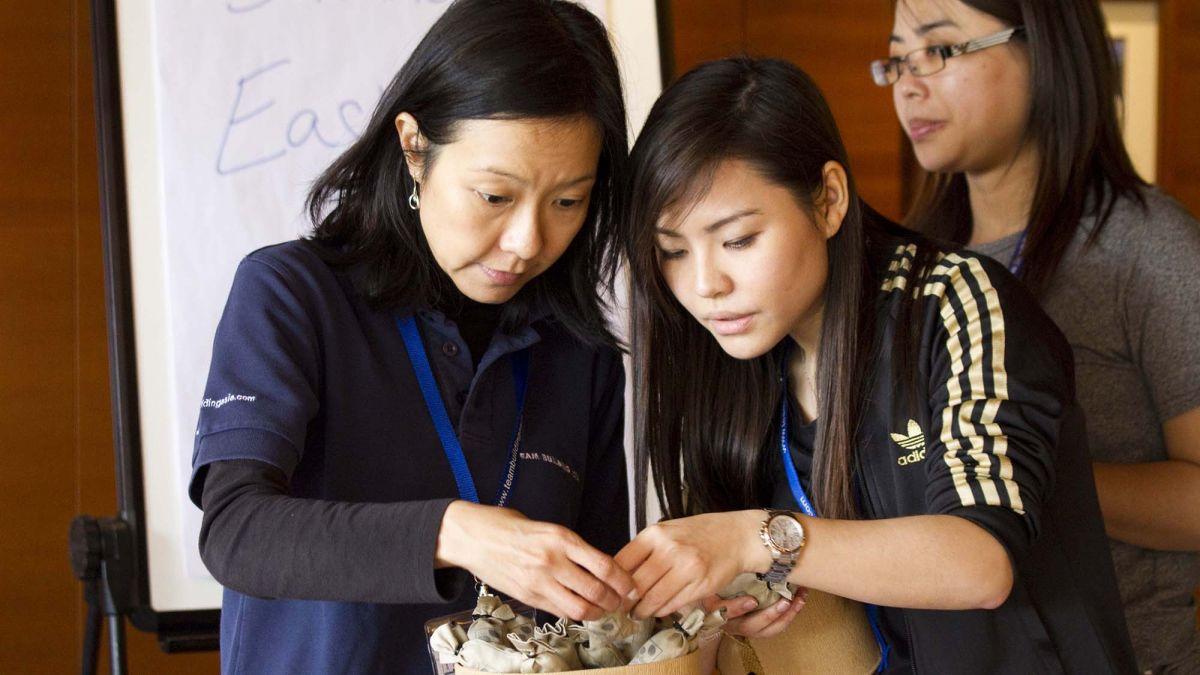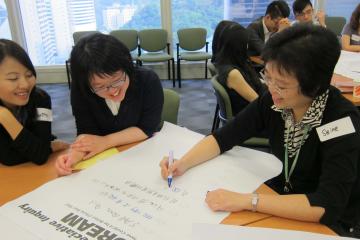Ask people what makes a great leader and you will get a myriad of different answers. We have all been inspired by different leaders and our own belief systems and personalities mean we will never reach consensus on what is a highly subjective matter. Of course there are hundreds of books and academic references on great leadership but is there value in just considering our own views and developing our own systems?
1. Developing your own Leadership System through Effective Communication.
A good exercise to run in an organisation is a Leadership Communication Platform. Participants are asked to write on a set of cards, traits which they consider make a great leader. These might include: “A great leader must stop at nothing to win”, “Great leadership focuses on employees then clients” or “Leadership is a lifestyle”. These cards are collected together and a participant chooses one at random. This statement is read aloud and the speaker states whether they agree or disagree and more importantly states their reason why. This presents for us the first part of a subjective understanding of leadership and creates meaningful dialogue.
For example the statement, “A great leader must stop at nothing to win” could have one response of “I agree, as leaders want to win, they need to win to stay on top and must do everything in their power to win or they will be left behind”. The second part of this exercise now comes into play as the other participants are allowed to challenge the response. One challenge could be, “Well I disagree, if a leader is so focused on winning all the time they neglect their team, the vision of the company and how they should be taking the company to the next level.” These challenges continue with levels of agreeing and disagreeing. The beauty of this exercise is that everyone gets to put forward their views and the rest must listen. Through this we have a great deal of opinions and ideas, which are all based on experience and beliefs. This allows all concerned to see a different viewpoint on perceptions of leadership and gain a greater insight and understanding on what are the critical success factors contributing to great leadership.
From this the team can create their own traits of great leadership, document it and have it as a roadmap for leadership development, which is company specific and employee driven.
2. Accurate assessment of Leadership at Individual, Team and Organisational Level.
Next comes the need to benchmark these subjective ideas against the academic and scientific data available. A great tool is to run a leadership assessment and there are many in the market to choose from. An important criteria to consider is an assessment which details traits in relation to interpersonal, achievement and leadership skills. Now match the subjective output from the previous exercise and see where it fits into the traits highlighted. This enables your team to benchmark their perceptions and tweak the roadmap to stay in line with current trends. Some leadership assessment models highlight interpersonal traits of opinions, self-esteem and power. Now revisit the subjective opinions on this and align the roadmap to bring it in line with current trends. By knowing where you measure up against the great leaders the assessments are based on, will enable you and your team to make the necessary behavioural changes and support each other in the development process.
3. Real play practice to deliver compelling leadership and relationship building.
Role plays are frequently used in leadership training, which gives the opportunity to practice getting it right before going into the field for real. However the challenge with using role plays is they tend to make us switch into performance mode and everything can feel quite staged. In the feedback sections, where the observations and key learning is highlighted, most report that while they behaved that way in the role play they reckon they wouldn’t have performed the same way in a real situation. Does this mean that role play as an experiential tool is redundant? Well maybe just a little adjustment is needed.
A fresh approach is to have the leaders report company specific scenarios they have been involved in and use these for the team moving up the leadership ladder. Using the participants to play the characters creates challenges in creating a real situation. For starters it is highly likely the participants know each other and find it difficult to believe the other person is in fact the disgruntled employee or under performing subordinate, they are supposed to be leading. They can manipulate this to their advantage and consider the scenario as fake and therefore not worthy of taking it seriously. Combat this immediately by hiring actors to play the employees and subordinates. If the company is big enough don’t even tell the participants that you are using actors. The actors can’t be manipulated and can bring realism and real emotions to the role play situations. They can give objective feedback and leave your participants with real, tangible developmental pointers which they take seriously and won’t forget easily.
4. Be Natural and Listen to Others.
We hear a lot about born leaders but maybe what this is suggesting is to be natural in our leadership style. We all have different personalities and this does not need to change as we progress to great leadership. What does need development and support is behavioural changes to make our own brand of leadership effective. By observing and listening to others we get our subjective understanding and assessments give us the hard data support the necessary behavioural changes. The positive mindset enables these changes and a few practice sessions with actors in a real play situation helps us observe these changes taking effect. Have fun with the process as you embark on this journey and continue to review and enhance your subjective understanding to support small changes towards great leadership.




